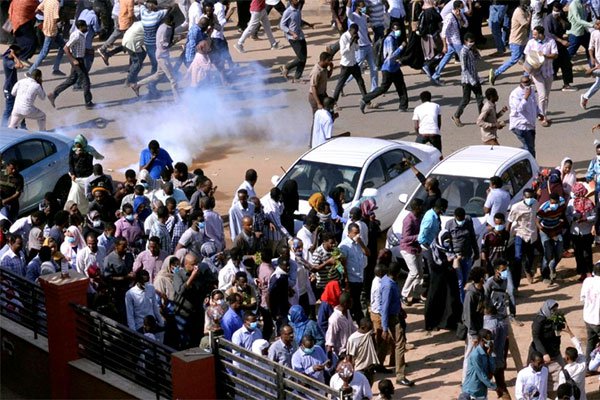Sudan’s President Omar al-Bashir has declared a national state of emergency as pressure mounts on him to exit power.
In a televised address following months of protests calling for his exit, he announced the dismissal of the federal government and the sacking of all state governors.
Mr Bashir has now appointed members of the security forces to replace the governors.
He has always vowed to continue as President, saying he would not be stampeded into leaving office by the ongoing protest.
Bashir has also said that “There’s only one road to power and that is through the ballot box. The Sudanese people will decide in 2020 who will govern them.”
He already has plans to run for the presidency for the third time in elections to be held in 2020.
But in his speech Mr Bashir asked parliament to call off any constitutional amendments that would allow him to run for another term.
“I announce imposing a state of emergency across the country for one year,” he said adding that “I announce dissolving the government at the federal level and at the provincial levels.”

How the protests started?
The protests were triggered after bread prices increased from one Sudanese pound ($0.02) to three Sudanese pounds ($0.063).
Bread prices in Sudan are said to be astronomically higher as a result of the country’s economic challenges.
The prices of bread have more than tripled since the start of last year. It was caused by the government decision to stop importing wheat from overseas.
Security forces are reported on several occasions of shooting into the protesters to disperse them resulting in casualties.
More than 800 protesters have been arrested across Sudan since the unrest began, officials say.
The Sudanese leader has accused what he calls external conspirators for ongoing anti-government protests.
He came to power in 1989 when he led a group of officers in a military coup that ousted a democratically elected government.
Source: Africafeeds.com



